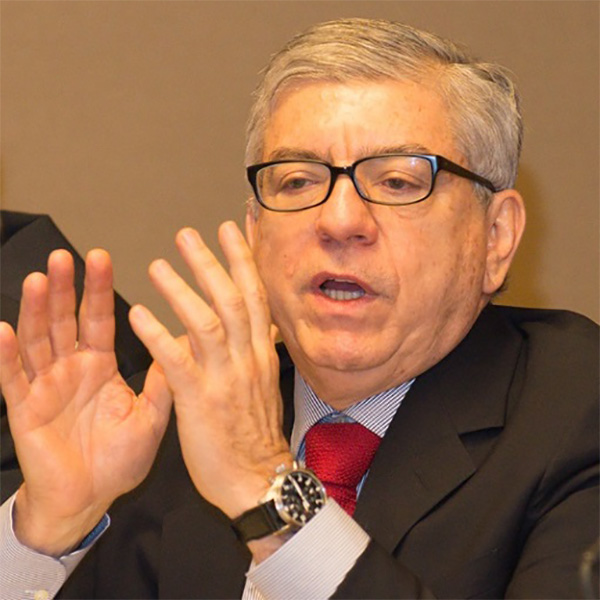
|
|
Newsletter nº 1 – 2017
|
 |
|
|
|
Brazil must squarely address its prison violence crisis
Brazil’s prisons are teetering on the edge. In the first three weeks of January 2017, over 110 inmates were brutally killed during prison riots across the country. This is not the first such outbreak of prison violence. Nor will it be the last. With at least 650,000 inmates – many of them held as pre-trial detainees – Brazil registers the fourth largest prison population in the world.
Igarapé Institute has repeatedly highlighted the challenge of prison violence in Brazil over the past two years, but also proposed solutions. In the first week of January 2017, the Institute again stressed the dangers of mass incarceration, appalling prison conditions, soaring recidivism and pre-trial detention in O Globo and the New York Times. These stories were repeated in hundreds of media outlets around the world throughout January and February from the New York Times Español to the Qatar Tribune.
The Igarapé Institute was invited to review the prison crisis with Folha de S. Paulo’s Ilustrissima in late January 2017. As part of their full page article Robert Muggah and Ilona Szabo de Carvalho highlighted the importance of reducing both the stock and flow of new inmates into Brazil’s jails. In their widely distributed op-ed, the authors underlined how “[d]ecriminalizing the use and possession of drugs for personal consumption can also strongly diminish new entrants into the prison system.”
In the first week of February the Minister of Brazil’s Supreme Court Luís Roberto Barrosoannounced that the prison crisis can only be solved by fundamentally reforming the country’s drug policies. In O Globo, he made an unprecedented call for regulating the production, distribution and consumption of all drugs stating that “[…] Ilona Szabó has demonstrated … that decriminalization does not make an impact on consumption.” Later in February we witnessed another advance: Brazil’s Supreme Court voted that prisoners in over-crowded prisons should be compensated. |
Igarapé in numbers – January 2017
- Igarapé Institute’s research director presented in 6 panels at the World Economic Forum in Davos, including the launch of the fragile cities data visualization. He generated roughly hundred unique media stories in more than 20 countries around the world.
- Igarapé Institute registered an unprecedented 886 citations in the global media in January 2017 alone. The Institute’s research was cited in over 50 countries around the world – including in television, radio and print media outlets.
- The Institute’s research was featured in front-page exclusives by the Associated Press, Agence France Press, O Globo, The New York Times and Folha de S.Paulo. These stories were also replicated hundreds of times.
- Igarapé Institute researchers published 16 opinion articles in January with versions translated in at least nine languages and reproduced in dozens of journals around the world.
- Institute researchers published 4 new articles in academic publications, with wide outreach in the Americas and Europe.
- Igarapé was present at 7 public events this month, including, besides the World Economic Forum Annual Meeting, Training on gender issues to new Brazilian Minustah troops and the United Nations World Data Forum in Cape Town.
|

Predicting city fragility at Davos
Igarapé Institute’s Robert Muggah delivered six lectures on fragile cities, international security and urban development at the annual meeting of the World Economic Forum in Davos (Switzerland). He also launched the fragile cities data visualization together with partners from Carnegie Mellon, UN University, 100 Resilient Cities, and xSeer (wtih support from Canada´s Global Affairs). The platform provides time-series data on 11 risks for all 2,100 cities around the world with populations of 250,000 residents or more. The digital tool also predicts future risks for all cities until 2030. The presentation was picked-up by 96 other media outlets around the world. The platform was also featured by the Atlantic,Forbes and Wired magazine in the previous month. |
|

Colombia’s former president’s warning to the Philippines
The Igarapé Institute highlighted the dangers of the Philippines drug war in January in The Guardian, generating over 12,000 shares and millions of social media comments. The article also generated a strong reaction from the Duterte’s presidential spokesperson and support from the opposition in Congress. The Igarapé later supported former Colombian president César Gaviria in an article written for the New York Times (in EnglishandSpanish). The article generated over 820 media citations, but also strong support from the Filipino vice president, endorsement from the Filipino congress, affirmation from Filipino governors, a tough rebuke from the Filipino president, and debate spanning 20 countries and 9 languages. |
|
Keep an eye out for
- Igarapé Institute’s executive director Ilona Szabó will release a new book – Drugs: The Untold Stories (in Portuguese). The book will be launched on 27 March in São Paulo and 29 March in Rio de Janeiro. The events include public debates with high-level personalities.
- The Igarapé Institute’s Robert Muggah will be giving a keynote at an upcomingWilton Park conference on the future of liberal order in the United Kingdom from 3-5 March.
- The Igarapé Institute’s Robert Muggah will be giving a keynote and presenting a new report at a CAF-OAS conference on citizen security on 7 March in Washington DC.
- Igarapé and UN Women will be coordinating a conference on the challenges and opportunities for implementing the women, peace, and security agenda on 28 and 29 March at the UN House in Brasília.
|
|
|